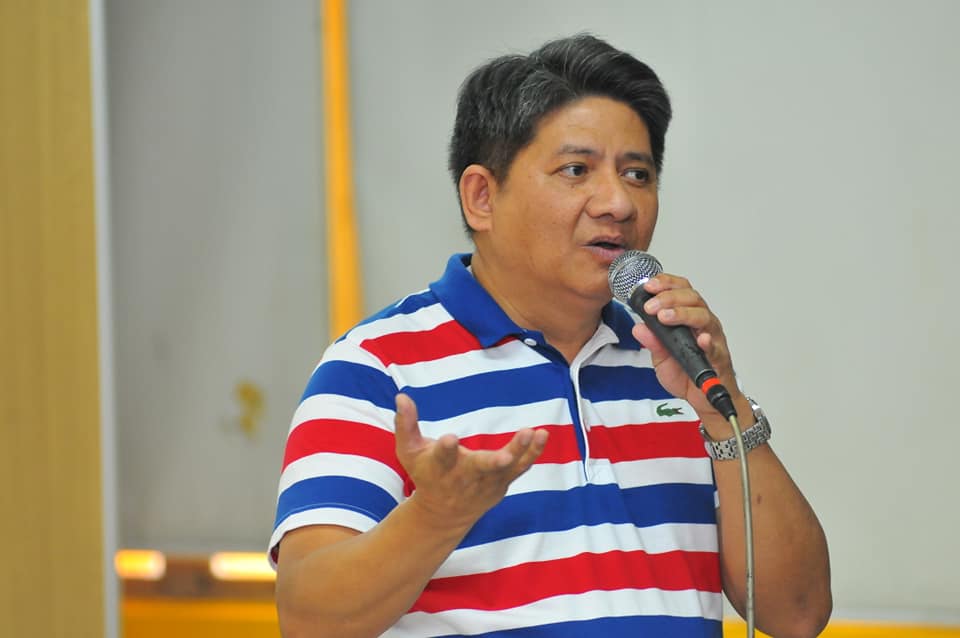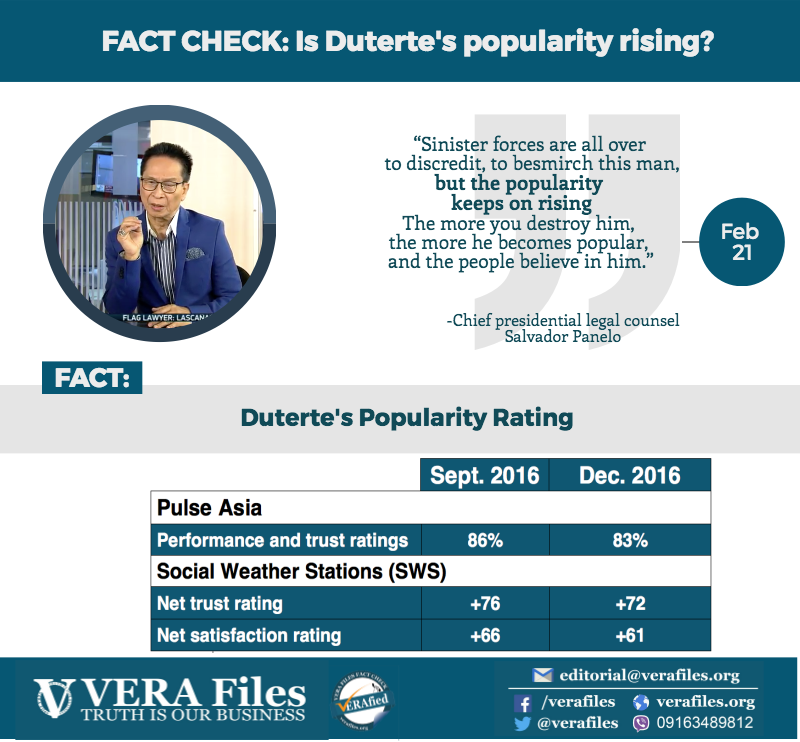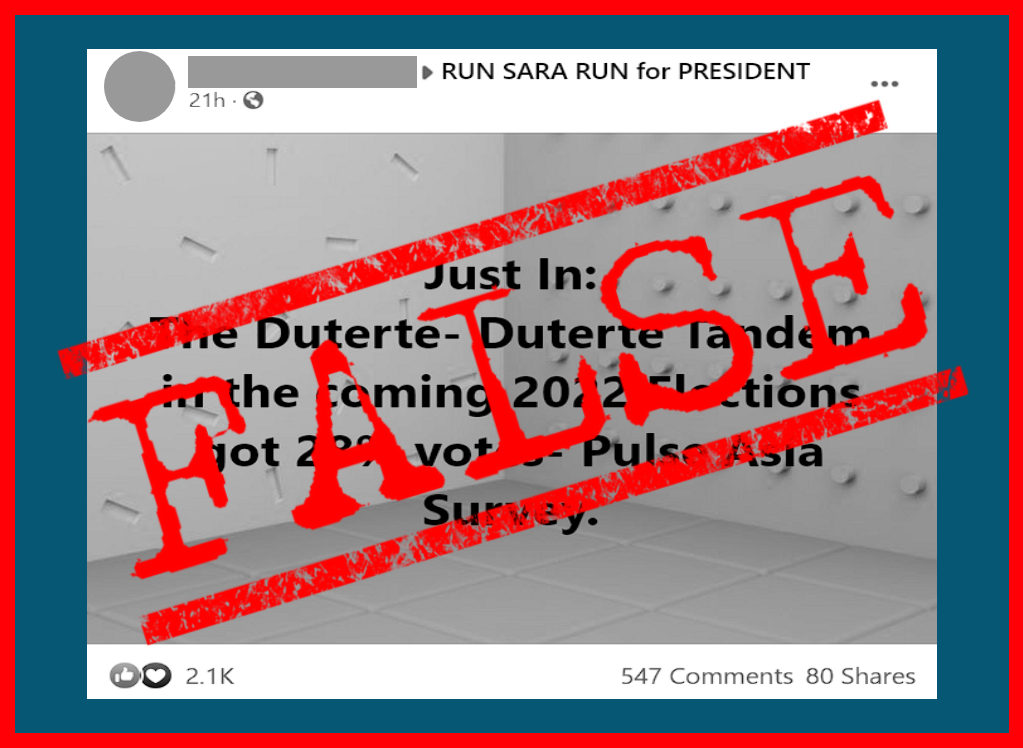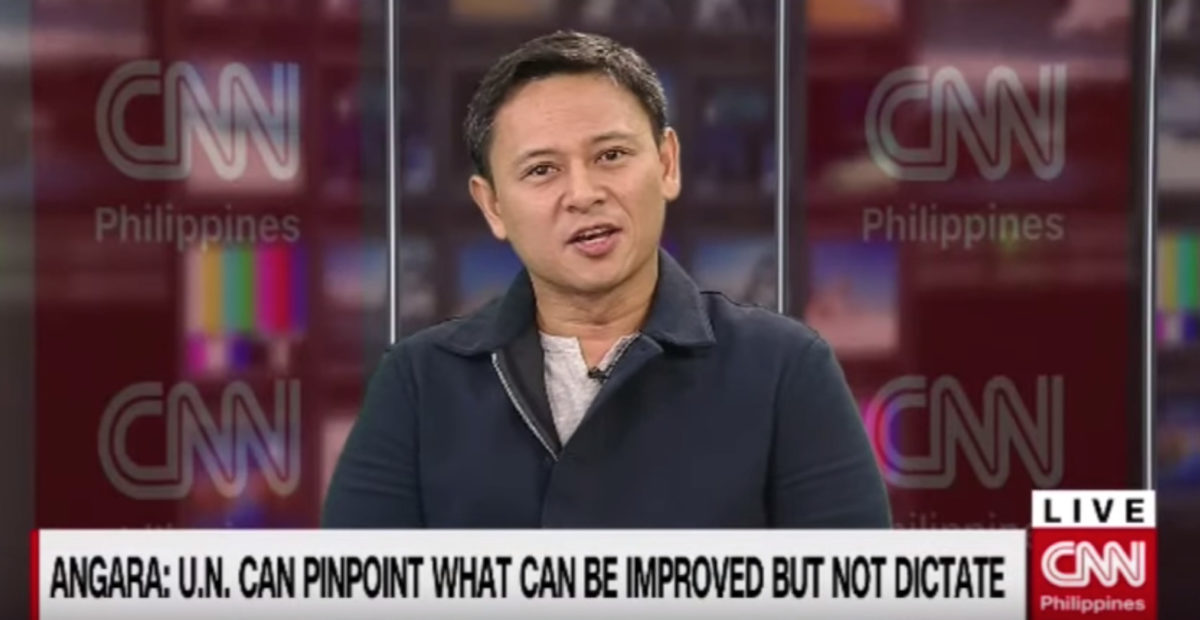Lawyer Lorenzo “Larry” Gadon, who is seeking a Senate seat, made two false claims in an expletive-laden outburst against polling firms Social Weather Stations (SWS) and Pulse Asia Research.
Trailing in the latest voter preference surveys, Gadon on Jan. 21 petitioned the Commission on Elections (Comelec) to bar the two polling firms from releasing “flawed and fake” pre-election results, saying surveys are a “mind conditioning scheme.”
STATEMENT
Weeks after media published senatorial surveys attributed to SWS and Pulse Asia, he slammed the two polling firms in a viral Facebook video:
“Fifty-five milyon ang botanteng Pilipino. Mag-su-survey sila ng 1,800 tapos idedeklara nila ‘yung mga top 12 daw? Aba eh nakapakalaking kalokohan! (There are 55 million Filipino voters. They survey 1,800 people and declare a top 12? That’s a big joke!)”
Source: Facebook.com, MOCHA USON BLOG, Jan. 21, 2019, watch from 0:08 to 0:19
The video, shared by 61 Facebook pages including that of former Communications Assistant Secretary Mocha Uson, could have reached 7.3 million people.
FACT
There are more than 61 million registered voters who will decide the outcome of the May 13 elections, according to the Comelec. Gadon understated the figure by 6 million.
In September 2018, SWS polled 1,500 adults nationwide: 600 from Balance Luzon and 300 each in Metro Manila, Visayas and Mindanao.
In December, Pulse Asia interviewed 1,800 adults, who were chosen based on this detailed distribution.
The number of respondents in the SWS and Pulse Asia electoral surveys have statistical basis.
The number of people polled in each survey were derived through “sampling,” a statistical process that researchers worldwide use to select a sample of individuals that would represent an entire population.
The Philippine Statistics Authority, the government’s central statistics agency, uses sampling in its nationwide surveys of households to gather data on the country’s labor force, health demographics, income and expenditure, among others.
Researchers also use sampling to find out which traits society values in men and women, to investigate the link between social media use and depression, and to rank the world’s happiest countries, among other things.
In election surveys, instead of polling every member of the population—for instance, 61 million registered Filipino voters—polling firms determine a representative “sample” to mirror the views of the voting population in a given period.
The American Association for Public Opinion Research (AAPOR), a group of public opinion and survey research professionals, explains the logic behind sampling: “If we can choose respondents randomly and appropriately from the larger population, the results from that random sample will be very close to what we would get by interviewing every member of the population.”
The World Association for Public Opinion Research (WAPOR) and the World Association for Social, Opinion and Market Research (ESOMAR) say that while pre-election polls are expected to be accurate in their estimates of a voting tally, they “should not be seen as predictions per se,” but as “a reflection of opinion at the time the poll was conducted.”
Sources:
American Association for Public Opinion Research, Why Sampling Works
American Association for Public Opinion Research, What is a Random Sample?
American Association for Public Opinion Research, Sampling Methods for Political Polling
Commission on Elections, Data on Total Number of Registered Voters, Jan. 24, 2019
Gallup International, Happiness, Hope, Economic Optimism: Gallup International’s 41st Annual Global End of Year Survey
Inquirer.net, Senate bet says surveys a form of mind conditioning, fake news, Jan. 21, 2019
Pew Research Center, Strong Men, Caring Women, July 24, 2018
Philippine Statistics Authority, Average Family Income in 2015 is Estimated at 22 Thousand Pesos Monthly (Results from the 2015 Family Income and Expenditure Survey), Oct. 24, 2016
Philippine Statistics Authority, Technical Notes on the Labor Force Survey (LFS), May 4, 2012
Philippine Statistics Authority, National Demographic and Health Survey 2018, October 2018
Pulse Asia Research, December 2018 Nationwide Survey on the May 2019 Senatorial Elections
Pulse Asia Research, Ulat ng Bayan June 2018 Technical Details
Social Weather Stations, SWS survey on senatorial preferences reported in Inquirer.net (10/12/2018) was sponsored by Mr. Alde Joselito Pagulayan, Oct. 12, 2018
Wiley Online Library, Association between social media use and depression among U.S. young adults, Jan. 19, 2016
(Guided by the code of principles of the International Fact-Checking Network at Poynter, VERA Files tracks the false claims, flip-flops, misleading statements of public officials and figures, and debunks them with factual evidence. Find out more about this initiative and our methodology.)
(VERA Files is a part of Tsek.ph, a collaborative fact-checking initiative by the academe and the media for the 2019 Philippine midterm elections.)




